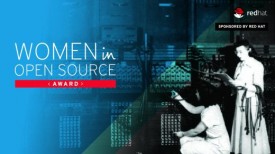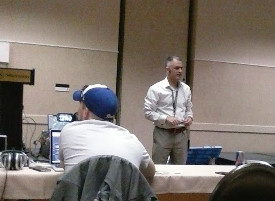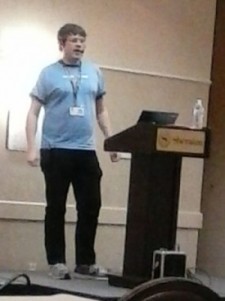Now that Microsoft has been pretty much neutralized as a threat, who’s next on the list to be free tech’s “public enemy number one?”
Oracle? While it’s true that the company is more thuggish than Redmond ever dreamed of being, Oracle has never really been a threat to anyone but the database and high finance crowds. Also, the company’s recent financials indicate the company, like Microsoft, isn’t what it used to be.
 Apple? So long as it continues to be an overpriced walled garden, it’s not likely to pose much of a threat. It’ll always be held in disdain by free tech folks, but always in the number two position because it’s easily ignored.
Apple? So long as it continues to be an overpriced walled garden, it’s not likely to pose much of a threat. It’ll always be held in disdain by free tech folks, but always in the number two position because it’s easily ignored.
My guess is that the company poised to win the most-hated-in-free-tech prize is Google.
Christine Hall has been a journalist since 1971. In 2001, she began writing a weekly consumer computer column and started covering Linux and FOSS in 2002 after making the switch to GNU/Linux. Follow her on Twitter: @BrideOfLinux



 Red Hat, Samsung Team Up: While there has been a lot of oooh-ing and ahhh-ing over what’s been coming out of the
Red Hat, Samsung Team Up: While there has been a lot of oooh-ing and ahhh-ing over what’s been coming out of the 
 Ironically, this side door is intended to be a security door for third party add-ons that every Windows machine needs to keep it safe from cracker hackers — if that’s indeed possible. And this security tool is usually more trusted by Microsoft system admins, especially those outside the U.S., than Windows itself.
Ironically, this side door is intended to be a security door for third party add-ons that every Windows machine needs to keep it safe from cracker hackers — if that’s indeed possible. And this security tool is usually more trusted by Microsoft system admins, especially those outside the U.S., than Windows itself. Sarah Sharp, an embedded software architect at Intel, and Kesha Shah, a student at Dhirubhai Ambani Institute of Information and Communication Technology, were named the winners of Red Hat’s first
Sarah Sharp, an embedded software architect at Intel, and Kesha Shah, a student at Dhirubhai Ambani Institute of Information and Communication Technology, were named the winners of Red Hat’s first 





 Somehow I managed to get up on time to make the hour and a half trip from my house to the Charlotte area in plenty of time for the 9 A.M. opening, groggy from only getting about three hours sleep, then wondered why I bothered arriving early. After all, the first presentation I planned to attend wasn’t until 11:30, and with no keynote address scheduled for Friday morning, that left me with a lot of time on my hands.
Somehow I managed to get up on time to make the hour and a half trip from my house to the Charlotte area in plenty of time for the 9 A.M. opening, groggy from only getting about three hours sleep, then wondered why I bothered arriving early. After all, the first presentation I planned to attend wasn’t until 11:30, and with no keynote address scheduled for Friday morning, that left me with a lot of time on my hands.
